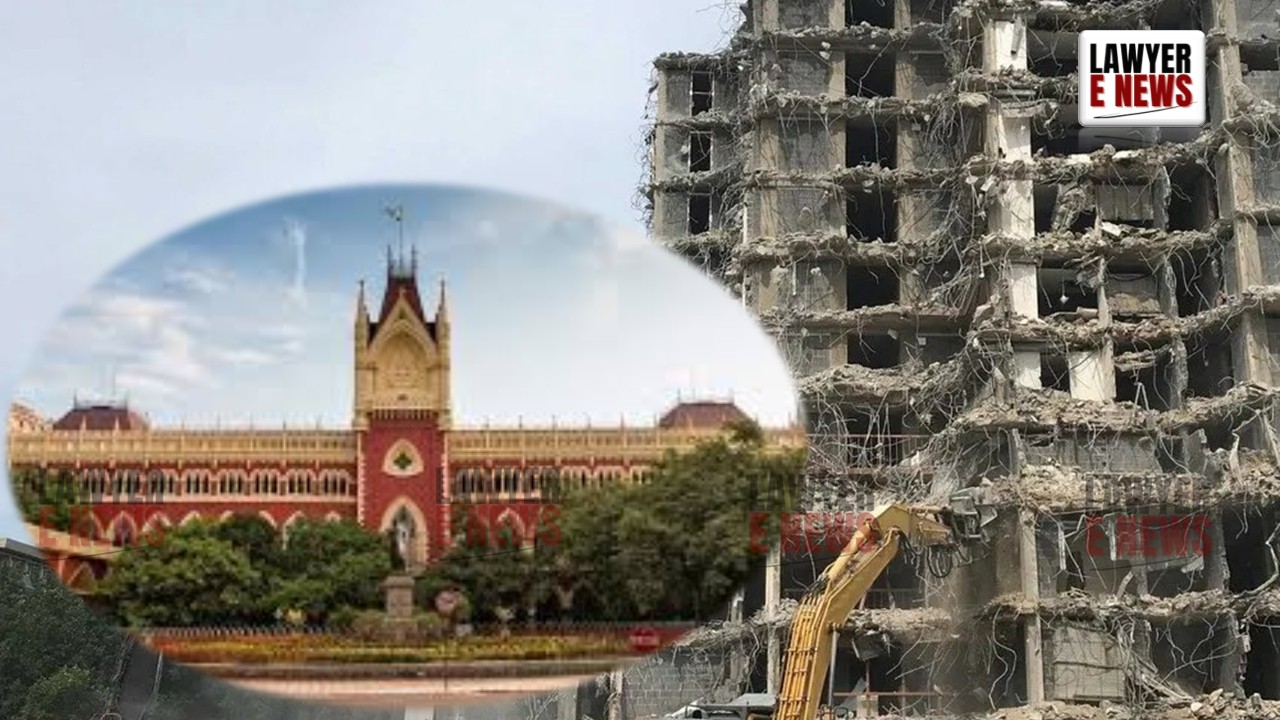-
by Admin
15 February 2026 5:01 PM



Parking Space Conversion Declared Unlawful - Calcutta High Court dismissed an appeal challenging the Bidhannagar Municipal Corporation’s demolition order against unauthorized flats constructed on land designated as parking spaces under a sanctioned building plan. The Division Bench of Justice Debangsu Basak and Justice Md. Shabbar Rashidi upheld the legality of the demolition order, emphasizing that the conversion of parking spaces into residential flats violated municipal laws and sanctioned plans.
The appellants, Sanchita Basu and her daughter, challenged the demolition order issued by the Commissioner, Bidhannagar Municipal Corporation, dated January 24, 2024. The flats in question were built on parking spaces at premises No. AA/14/1, Deshbandhu Nagar, Kolkata, as per the sanctioned plan. The appellants claimed that they had not undertaken the unauthorized construction themselves, as the flats were gifted to them by the deceased husband of the first appellant.
The appellants argued that the flats constituted a minor deviation from the sanctioned plan, which could be regularized, and sought relief on the grounds that the demolition would render them homeless.
The Court unequivocally held that neither the West Bengal Municipal Corporation Act, 2006, nor the West Bengal Municipal (Building) Rules, 2007, permits the conversion of designated parking spaces into residential flats. The Court ruled that the flats violated the sanctioned building plan, which explicitly reserved the area for parking purposes.
The Court found that the demolition order was passed after a proper hearing of all concerned parties and an inspection of the premises by the Commissioner of Bidhannagar Municipal Corporation. It concluded that there was no violation of the principles of natural justice in the process.
The Court noted that the appellants had bypassed the statutory appellate mechanism available under municipal law and directly approached the writ court. The Bench emphasized that an appellate authority could reappraise evidence and modify findings, unlike the limited jurisdiction of a writ court. The decision to dismiss the writ petition was thus justified.
Citing Nahalchand Laloochand Pvt. Ltd. v. Panchali Cooperative Housing Society Ltd., (2010) 9 SCC 536, the Court reiterated that parking spaces are part of common areas in housing developments and cannot be converted for other uses.
The Court observed that the demolition order was lawful and well-reasoned. The Commissioner’s inspection revealed that the entire ground floor, designated for parking, had been converted into flats, affecting the common facilities of the building’s occupants.
Considering the appellants’ claim of having no alternate residence, the Court granted them two months to vacate the premises before the demolition order could be executed.
The Court emphasized the sanctity of sanctioned building plans and ruled against any unauthorized deviation, particularly when such deviations affect common facilities like parking spaces.
The Court highlighted that statutory appeal mechanisms must be exhausted before invoking the writ jurisdiction of the High Court.
The decision reinforces the principle that common areas, such as parking spaces, cannot be appropriated for private use, protecting the interests of all residents in a housing society.
Date of Decision: December 11, 2024
